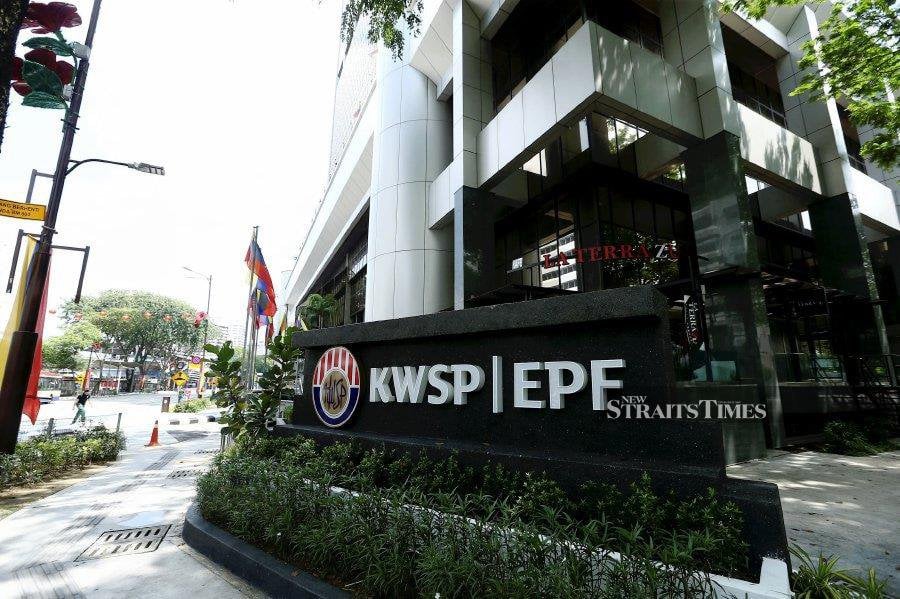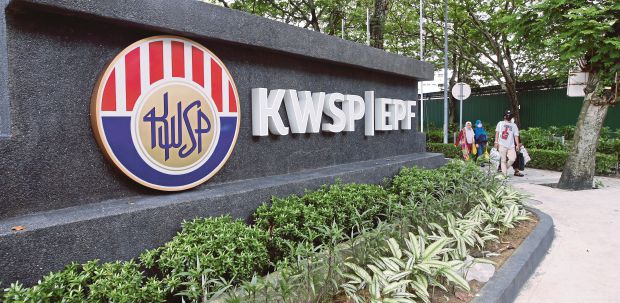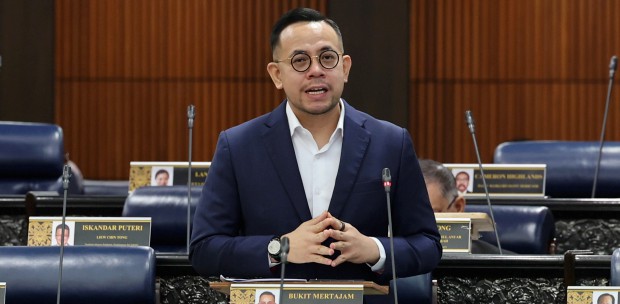KUALA LUMPUR: The Employees Provident Fund's (EPF) gross investment income rose 7.7 per cent year-on-year (YoY) or RM3.42 billion to RM48.02 billion for the nine months ended September 30, 2021 (9M 2021) from RM44.60 billion a year ago.
The pension fund said total gross investment income for the third quarter ended September 30, 2021 (Q3 2021) amounted to RM13.97 billion, down from RM17.33 billion recorded in the corresponding quarter in 2020.
Chief executive officer Datuk Seri Amir Hamzah Azizan said Q3 2021 had been volatile for equities in both the domestic and emerging markets, largely caused by the concerns surrounding rising inflation and interest rates.
"Nonetheless, continued recovery of equities in the developed economies amidst the heightened volatility has provided EPF the opportunity to capitalise additional gains," he said in a statement today.
The EPF said equities continued to be the main income contributor, accounting for 54 per cent of total gross investment income at RM7.50 billion.
It added that RM0.11 billion was written down for listed equities during the quarter, compared to RM0.13 billion in the corresponding period last year.
This was part of the EPF's internal policy and a prudent measure to ensure a healthy portfolio.
The EPF said a total of RM13.86 billion in net investment income was recorded during Q3 2021, after taking into account the cost write down.
Cumulatively, the EPF said RM0.35 billion was written down for listed equities, down from the RM6.46 billion for the same period in 2020 on the back of continued recovery in the global equity market.
This has resulted in net investment income of RM47.67 billion for 9M 2021, compared to RM38.14 billion for 9M 2020.
"Investments in fixed income instruments contributed RM5.00 billion, or 36 per cent to Q3 2021 gross investment income, which was lower than the RM8.18 billion income generated in Q3 2020 due to lower trading gains."
The EPF said this was in line with the higher market yield in Q3 2021, compared to the same period last year.
Amir Hamzah said continued inflationary pressure and aggressive shifts from central banks had led yields to increase during the quarter amid increased expectations for monetary policy tightening.
"The environment of increasing bond yields has not just impacted bond markets, but created unease in equities as well," he said.
Meanwhile, tje EPF said real estate and infrastructure, as well as money market instruments, contributed RM1.18 billion and RM0.29 billion, respectively.
As at September 2021, the EPF investment assets stood at RM988.55 billion, of which 36 per cent was invested in overseas investments.
The EPF said its diversification in different asset classes, markets and currencies continue to provide income stability and add value to its overall returns.
In Q3 2021, the EPF's overseas investments generated RM8.10 billion in income, representing 58 per cent of the total gross investment income recorded.
A total of RM1.40 billion out of the RM13.97 billion gross investment income was generated for Simpanan Shariah, and RM12.57 billion for Simpanan Konvensional.
Simpanan Shariah derives its income solely from its portion of the Shariah portfolio while income for Simpanan Konvensional is generated by a share of both the Shariah and conventional portfolios.
The EPF said the post-lockdown recovery continues to grow, although at a slower pace, despite continuing concerns on the monetary policy and inflation outlook.
It said risks to Malaysia's economic growth outlook remained tilted to the downside on external and domestic factors amid lingering Covid-19 concerns.
"The emergence of new infectious or vaccine-resistant variants of the Covid-19 virus is one of the key downside risks to economic growth and market recovery.
"Concerns over inflation and the tightening of monetary policy will continue to cause uncertainty and volatility in both the equity and bond markets," said Amir Hamzah.
He said the EPF was hopeful of seeing market sentiments improving in the near future, despite the challenging and unprecedented times.
"As a long-term fund, we remain committed and guided by our Strategic Asset Allocation (SAA) that helps us to ride out volatilities while taking advantage of the declines in valuations of fundamentally strong assets."
Amir Hamzah said the reopening of the Malaysian economy was expected to support gradual recovery well into 2022, and in tandem, the EPF would accelerate its efforts to help members rebuild their retirement savings as well as cast its social safety net wider by coordinating closely with the government and relevant agencies.
"One of the big ticket items for the EPF further into 2022 is to refresh our mandate to remain relevant to more Malaysians in the informal sector as well as contract for service workers, which now form the majority of the country's labour force.
"This is important as we need to ensure that they have access to at least a minimum standard of living, even during unprecedented times," he added.






